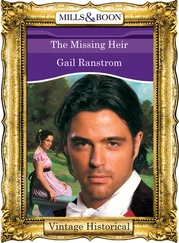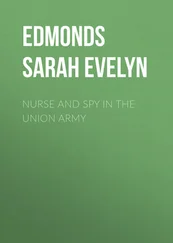Sarah Macnaughtan - Peter and Jane; Or, The Missing Heir
Здесь есть возможность читать онлайн «Sarah Macnaughtan - Peter and Jane; Or, The Missing Heir» — ознакомительный отрывок электронной книги совершенно бесплатно, а после прочтения отрывка купить полную версию. В некоторых случаях можно слушать аудио, скачать через торрент в формате fb2 и присутствует краткое содержание. Жанр: foreign_prose, foreign_antique, на английском языке. Описание произведения, (предисловие) а так же отзывы посетителей доступны на портале библиотеки ЛибКат.
- Название:Peter and Jane; Or, The Missing Heir
- Автор:
- Жанр:
- Год:неизвестен
- ISBN:нет данных
- Рейтинг книги:3 / 5. Голосов: 1
-
Избранное:Добавить в избранное
- Отзывы:
-
Ваша оценка:
- 60
- 1
- 2
- 3
- 4
- 5
Peter and Jane; Or, The Missing Heir: краткое содержание, описание и аннотация
Предлагаем к чтению аннотацию, описание, краткое содержание или предисловие (зависит от того, что написал сам автор книги «Peter and Jane; Or, The Missing Heir»). Если вы не нашли необходимую информацию о книге — напишите в комментариях, мы постараемся отыскать её.
Peter and Jane; Or, The Missing Heir — читать онлайн ознакомительный отрывок
Ниже представлен текст книги, разбитый по страницам. Система сохранения места последней прочитанной страницы, позволяет с удобством читать онлайн бесплатно книгу «Peter and Jane; Or, The Missing Heir», без необходимости каждый раз заново искать на чём Вы остановились. Поставьте закладку, и сможете в любой момент перейти на страницу, на которой закончили чтение.
Интервал:
Закладка:
S. Macnaughtan
Peter and Jane; Or, The Missing Heir
CHAPTER I
Mrs. Ogilvie, red-haired according to the exact shade then in fashion, and dressed by Paquin, sat in her drawing-room reading the Court Journal . She was a woman who thought on the lines of Aristotle, despised most other women except Charlotte Corday, Judith, Joan of Arc, and a few more, and she dyed her hair and read the Court Journal . People who did not know her sometimes alluded to her as an overdressed woman with a wig. Those who had met her even but once admitted the power of her personality. Perhaps if any one had known her very well he or she would have been bewildered by the many-sided complexities of her character, and would have failed to discover any sort of unity behind its surprising differences. But then, as a matter of fact, no one did know her well.
Those who cared to remember such an old story used to tell how, as a girl of eighteen, she had been deeply in love with a cousin of hers, Greville Monsen by name, and how almost on the eve of her marriage she had thrown him over and had married Colonel Ogilvie the explorer, a man twenty years older than herself, with an enormous fortune, and accounted something of a hero at the time.
Colonel Ogilvie married late in life, and his brother's wife had long ago decided that it would be better if he should never marry at all. Mrs. Lionel Ogilvie was an ambitious woman with a fine family of sons and daughters to whom Colonel Ogilvie's large estates and immense fortune would have been wholly appropriate. She had always been civil to her brother-in-law, although the estates and the money were entailed upon his brother, and she weighed in the balance the disinterested affection which she showed him against her feeling of satisfaction in the fact that he was a daring and indefatigable traveller; one, moreover, who was seldom quite happy unless he was in danger, and who never thoroughly enjoyed a journey if any other white man had trodden the ground before he himself visited it.
Mrs. Lionel Ogilvie was indignant at the news of Colonel Ogilvie's marriage. Being a very wise woman she would probably in time have controlled her temper, and by a little judicious management she might have secured a considerable fortune for herself and her children. But, alas! there was a necessity within her of exploding to some one when, as in this instance, her heart was hot and her head not quite cool. And so, with some sense of justice, venting her spleen upon the cause of it, Mrs. Lionel Ogilvie said certain very unwise and unkind things about her brother-in-law's fiancée and her cousin, Greville Monsen. Of course the heated and uncontrolled words of the disappointed woman were repeated, and there was a terrible and stormy interview between the two brothers, who parted that same day and never spoke to each other again.
Mrs. Francis Ogilvie bore the character of being a cold and dispassionate woman. And this was the more remarkable because on the distaff-side she was of Spanish descent, and might reasonably have been supposed to have inherited the instincts of that passionate and hot-tempered nation. She never quarrelled as the brothers had done, but her eyes narrowed for an instant with a trick that was characteristic of her when she heard Mrs. Lionel Ogilvie's tale. And when, in the quieter moments that followed her husband's outburst of anger, he asked her with a tone of question in his voice whether Lionel and that odious wife of his could possibly expect to be forgiven, Mrs. Ogilvie raised her eyebrows and said simply, 'I do not know what forgiveness means.' She paid no attention to the vulgar gossip which her sister-in-law tried to attach to her name, and Greville Monsen had either got over his disappointment, or was sufficiently attached to his former fiancée to forgive her her treatment of him. He came to the house on terms of intimate friendship, and continued to do so even after Mrs. Lionel Ogilvie's busy tongue had spoken.
Mrs. Ogilvie was not affected by gossip, nor moved by public opinion. To have altered her conduct, even by a hair's-breadth, because it was not generally approved would have seemed to her an absurdity; but those who offended her were not given the opportunity of doing so twice. To have had small quarrels followed by reconciliations would have been impossible to her. Very few things were worth quarrelling about at all, still fewer worth forgiving! Mrs. Ogilvie was cynically indifferent to transgressions against herself; but when she sat in judgment she always gave a life-sentence.
When Lionel died the feud between the brothers would probably have been forgotten had it not been for the lamentable fact that his eldest son, who had grown up into a faithful likeness of his worldly and commonplace mother, took it into his head at the time of his father's death to write to his uncle in a way which showed as much greed as ill-breeding. The foolish young man's letter might have been put into the fire and forgotten, for Colonel Ogilvie had loved his brother long ago, and his death affected him deeply; but young Lionel made a mistake when he referred to the fact that Colonel and Mrs. Ogilvie were childless, and alluded to his own prospects. This put an end for ever to all friendly intercourse between the uncle and nephew; Mrs. Ogilvie, on her part, lifted her eyebrows again and said, 'The commercial mind is very droll!' But just for one moment she locked her hands together with an impulsive movement that had a whole life's tragedy and disappointment in it.
It meant all the world to her and her husband that they should have children. But Fate, who had prospered them in every other respect, had denied them what they most desired. A son and heir, who was born a year after the marriage, had died the same day. Two years later a little girl was born who lived a few weeks, and then she also died. Since then there had been no children. Many women would have claimed sympathy for their sorrow, most women would at least have accepted it. Mrs. Ogilvie, with her health somewhat impaired, came back to the world and assumed her place in it without any expressions of regret for her disappointment. Probably not even her husband knew whether she felt her loss deeply or not. No one else was ever permitted to speak of it. Colonel Ogilvie's own disappointment was never expressed. He had too much tenderness for his wife to say anything about it.
'If ever I am to be a mother again,' Mrs. Ogilvie said once, 'my child shall be born out of reach of kind inquiries or deep sympathy. If he lives, let those rejoice with me who will. But pity is always offensive, and is generally meant to be so.'
As the years came and went Colonel Ogilvie lost interest in his property, and handed over the care of the greater part of it to agents and stewards, and came very near to hating the lands which some day would go to his nephew. A queer restlessness was upon him, and his wife watched him and said nothing; until one day, seeing him reading a certain paragraph in a newspaper, she said to him, smiling slightly, as they stood together on the broad stone terrace at Bowshott, 'Why don't you go with them on this exploring expedition?'
Colonel Ogilvie protested. He was a married man, he said, and his travelling days were over. It is probable, however, that never was a suggestion more welcome. The past years, in spite of his deep love for his wife, had been full of fret and shadowed by disappointment, and he longed, with a traveller's intensity of longing, for the wild untroubled places of the world, the primitive life, and if possible some dangers on the road. An exploring party sent out by the British Government to discover a lost missionary and to punish a warlike tribe was exactly the thing to suit his adventurous disposition. In spirit he was already in the dangerous places of Central Africa, far from human habitation, and with very often his own right hand the sole thing between him and a barbarous death. Even while he protested with conscientious emphasis against his wife's proposal, he already saw the dim forests of Africa, the line of bearers on the difficult march, the tents struck at nightfall, and all the paraphernalia of an interesting campaign.
Читать дальшеИнтервал:
Закладка:
Похожие книги на «Peter and Jane; Or, The Missing Heir»
Представляем Вашему вниманию похожие книги на «Peter and Jane; Or, The Missing Heir» списком для выбора. Мы отобрали схожую по названию и смыслу литературу в надежде предоставить читателям больше вариантов отыскать новые, интересные, ещё непрочитанные произведения.
Обсуждение, отзывы о книге «Peter and Jane; Or, The Missing Heir» и просто собственные мнения читателей. Оставьте ваши комментарии, напишите, что Вы думаете о произведении, его смысле или главных героях. Укажите что конкретно понравилось, а что нет, и почему Вы так считаете.












